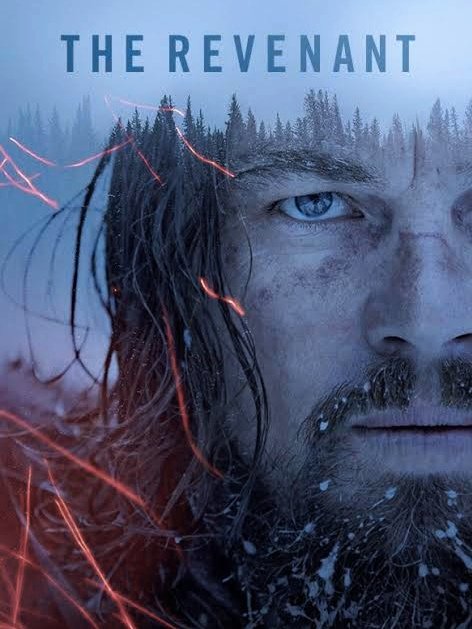
Leonardo DiCaprio’s Oscar-Winning Masterpiece: A Look at The Revenant

Beyond the Wilderness: The Emotional Depth of The Revenant
Introduction
Some films don’t just entertain—they challenge, inspire, and leave an indelible mark on the audience. The Revenant is one such masterpiece. Directed by Alejandro G. Iñárritu and released in 2015, this survival drama takes viewers on an unrelenting journey through the wilderness, chronicling the trials of frontiersman Hugh Glass. Anchored by breathtaking visuals and powerful performances, the movie is a visceral exploration of human resilience and the quest for vengeance.
The True Story That Inspired the Film
The Revenant is rooted in the true story of Hugh Glass, a 19th-century fur trapper and frontiersman. In 1823, Glass survived a brutal bear attack, only to be abandoned by his companions, who left him for dead. Against unimaginable odds, he traversed hundreds of miles to seek justice. The film takes creative liberties but stays faithful to the essence of his incredible survival tale, blending history with cinematic artistry.
Plot Summary

The Harrowing Wilderness
Set in the untamed American frontier, The Revenant begins with a fur-trapping expedition led by Captain Andrew Henry (Domhnall Gleeson). The crew is ambushed by Native Americans seeking to recover a kidnapped tribal member. This violent opening sequence sets the tone for the film, highlighting the dangers of the wilderness.
The Bear Attack
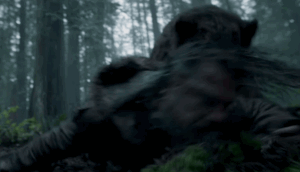
The story’s turning point is Glass’s encounter with a grizzly bear. In a scene that has become iconic, Glass is mauled in a brutal and graphic attack that leaves him on the brink of death. This harrowing moment showcases the raw power of nature and the fragility of human life.
Betrayal and Abandonment
Glass’s injuries render him unable to travel, prompting the group to leave him behind. John Fitzgerald (Tom Hardy), driven by self-interest, betrays Glass by killing his son Hawk and abandoning him to die. This act of treachery ignites Glass’s determination to survive and seek vengeance.
The Quest for Survival
Left alone in the freezing wilderness, Glass defies all odds. He battles infection, starvation, and hostile conditions, relying on sheer willpower and his connection to nature. His journey is both a physical and emotional trial, marked by haunting flashbacks and moments of spiritual introspection.
Themes and Symbolism

Survival Against All Odds
At its core, The Revenant is a story of survival. The film portrays nature as both a ruthless adversary and a source of spiritual awakening, emphasizing humanity’s capacity to endure.
Revenge and Forgiveness
Glass’s pursuit of Fitzgerald is driven by vengeance, but the film explores the moral ambiguity of revenge. By the end, it questions whether vengeance truly brings closure.
Connection with Nature
The film’s meditative tone underscores the profound bond between humanity and the natural world. Glass’s journey is as much about inner transformation as it is about external survival.
Cinematic Excellence
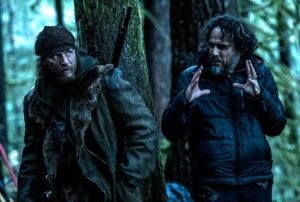
Alejandro G. Iñárritu’s Direction
Iñárritu’s vision transforms The Revenant into a cinematic experience unlike any other. His commitment to authenticity—including filming in natural light and harsh conditions—immerses the audience in the story.
Visual Storytelling
Emmanuel Lubezki’s cinematography is nothing short of breathtaking. From vast snowy landscapes to intimate close-ups, the visuals create a sense of isolation and grandeur, making the wilderness a character in its own right.
Sound Design and Music
The sound design captures every crunch of snow and whisper of wind, amplifying the tension. The haunting score by Ryuichi Sakamoto and Alva Noto enhances the film’s emotional depth, complementing its visuals.
Performances
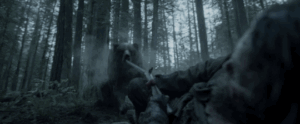
Leonardo DiCaprio as Hugh Glass
DiCaprio delivers a career-defining performance, conveying pain, desperation, and resilience with raw intensity. His physical commitment—eating raw bison liver, braving icy waters—earned him a well-deserved Oscar.
Tom Hardy as John Fitzgerald
Hardy’s portrayal of Fitzgerald is chilling. His character embodies greed and survival instinct, serving as a stark contrast to Glass’s perseverance.
Supporting Cast
Will Poulter as Jim Bridger and Domhnall Gleeson as Captain Henry provide strong supporting performances, adding depth to the narrative.
The Legacy of The Revenant
Since its release, The Revenant has been celebrated as a triumph of filmmaking. It won multiple Academy Awards, including Best Actor for DiCaprio and Best Director for Iñárritu. Its exploration of universal themes—survival, justice, and humanity’s bond with nature—ensures its lasting relevance.

Conclusion
The Revenant is not just a film; it’s an experience. With its stunning visuals, gripping story, and profound themes, it pushes the boundaries of cinematic storytelling. It serves as a powerful reminder of the resilience of the human spirit and the complexities of vengeance and forgiveness. For those seeking a visceral, thought-provoking journey, The Revenant is an unmissable masterpiece.
FAQs
- Is The Revenant based on a true story?
Yes, it is inspired by the real-life story of Hugh Glass, a 19th-century frontiersman. - What is the significance of the bear attack scene?
The bear attack symbolizes the brutality of nature and sets the stage for Glass’s journey of survival and vengeance. - How authentic is the depiction of the wilderness?
The film’s commitment to natural light and real locations makes it one of the most authentic portrayals of the frontier. - Why did Leonardo DiCaprio’s performance gain such acclaim?
DiCaprio’s intense physical and emotional commitment brought unparalleled depth to the role. - What is the overall message of The Revenant?
The film explores themes of survival, resilience, and the transformative power of forgiveness. - Catch Me If You Can: The Thrilling True Story of Deception and RedemptionPushpa 2: Rise of the KingDeath Race 3: A Thrilling Ride Through the Desert InfernoStep Up: A Dance-Fueled Journey of Dreams and RedemptionThe Matrix Revolutions: A War Between Man, Machines, and Fate
Discover more from imd369
Subscribe to get the latest posts sent to your email.

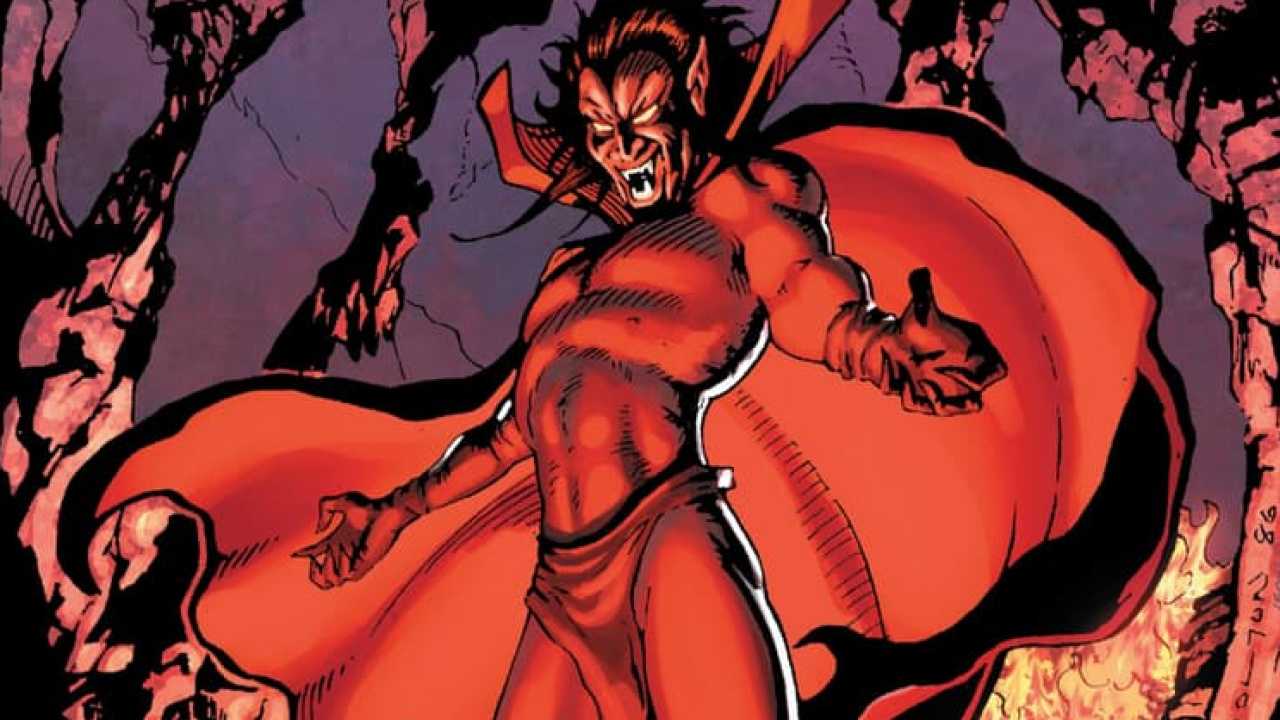


3 thoughts on “Leonardo DiCaprio’s Oscar-Winning Masterpiece: A Look at The Revenant”